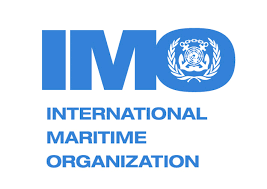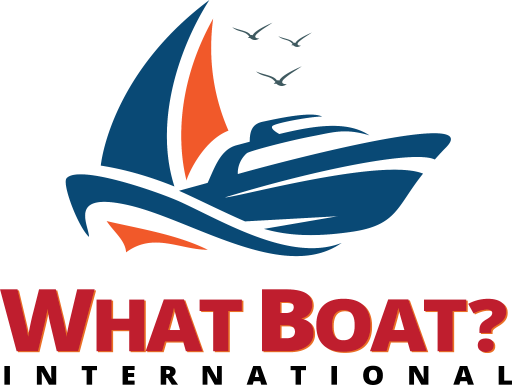
Published on: 12 July 2023

Report from the latest Marine Environment Protection Committee (MEPC) meeting is now available for British Marine members to download
Following a long anticipated and talked about 80th session of the Marine Environment Protection Committee (MEPC) held from the 3-7 July 2023 with a strong focus on shipping’s greenhouse gas (GHG) reduction plan, a full report is now available to download from the British Marine website.
The key items of interest from this meeting were the following:
Reduction of GHG emissions from ships – The Committee adopted the 2023 IMO GHG Strategy. This new strategy contains some of the largest changes and commitments set out by the IMO to date and is driven by the levels of ambition and progress is monitored through indicative checkpoints, taking into account the well-to-wake GHG emissions of marine fuels as addressed in the Guidelines on lifecycle GHG intensity of marine fuels (LCA guidelines) and preventing a shift of emissions to other sectors.
The yachting industry is not included in any of the regulations regarding GHG emissions (EEDI, EEXI, CII) and will therefore not at this point be affected by the GHG strategy. However it cannot be assumed that the sector will always be exempt and therefore it is prudent to maintain a close watch on developments. It is also becoming apparent that even though yachting is not included in the current regulatory framework there is an increasing desire among stakeholders to be seen to be playing their part to address the climate emergency.
The principal goals (levels of ambition) of the strategy are:
- To peak GHG emissions from international shipping as soon as possible and to reach Net Zero GHG emissions by or around, i.e. close to 2050.
- Uptake of zero or near-zero GHG emission technologies, fuels and/or energy sources to represent at least five percent, striving for ten percent, of the energy used by international shipping by 2030.
- To reduce CO2 emissions per transport work, as an average across international shipping, by at least 40 percent by 2030, compared to 2008.
The indicative checkpoints of the strategy were agreed as follows:
- To reduce the total annual GHG emissions from international shipping by at least 20 percent, striving for 30 percent, by 2030, compared to 2008.
- To reduce the total annual GHG emissions from international shipping by at least 70 percent, striving for 80 percent, by 2040, compared to 2008.
Draft guidelines on life cycle GHG intensity of marine fuels (LCA Guidelines) – The Committee adopted the LCA guidelines which will be used to support the mid-term measures which might be adopted by MEPC at future sessions.
The LCA guidelines calculate well-to-wake emission factors made up of well-to-tank and tank-to-wake factors of the total GHG emissions related to the production and use of marine fuels. The Committee established a correspondence group to continue the development of the LCA framework within the guidelines. The LCA framework determines the potential environmental impacts of products, processes or services from cradle to grave, e.g. from acquisition/extraction of raw materials through to processing, transport, use and disposal.
Biofuels and biofuel blends – India submitted MEPC 80/7/9 (attached) proposing that biofuels be given an emission conversion factor of zero. However due to the ongoing LCA guidelines work mentioned above, this was not supported.
However following this discussion the Committee instructed the working group on air pollution and energy efficiency to develop interim guidance on the use of biofuels and biofuel blends.
The Committee approved the draft MEPC circular on interim guidance on the use of biofuels under regulations 26, 27 and 28 of MARPOL Annex VI as set out in annex 1, Report of the Working Group on Air Pollution and Energy Efficiency MEP C 80/WP.11.
The guidance allows a conversion factor (Cf) considering the following:
- Biofuels must be certified by an international certification scheme
- Well-to-wake GHG reductions must be at least 65 percent compared to well-to-wake emissions of fossil MGO
- Cf is equal to the value of the well-to-wake GHG emissions of the fuel according to the certificate multiplied by its lower calorific value (LCV) and cannot be less than 0.
- For blends, the Cf should be based on the weighted average of the Cf for the respective amount of fuels by energy.
BWM Convention – It has been reported that 70% of port state control deficiencies in relation to the BWM convention are due to incorrect entries in the ballast water record book (BWRB). During MEPC 78 it was recognised that the current form of the BWRB did not provide sufficient clarity to meet the requirements of Appendix II of the BWM convention. As a result, the Committee adopted amendments to Appendix II of the BWM Convention. The amendments can be found at annex 1 of the attached report of the drafting group in document MEPC 80/WP.9.
The Committee also approved the draft BWM.2 circular on Guidance on matters relating to ballast water record-keeping and reporting which can be found at annex 5 of the attached report of the BW review group in document MEPC 80/WP.13.
The amendments will enter into force on 1 February 2025 at which time all vessels must be using the revised version of the BWRB.
The BWM convention allows for the use of electronic record book and the Committee adopted the draft MEPC resolution on “Guidance for the use of electronic record books under the BWM Convention” which can be found at annex 8 of the BW review group report.
Guidelines for the control and management of ships’ biofouling to minimize the transfer of invasive species – The Committee adopted the guidelines which will assist owners and operators in minimising the transfer of potentially harmful aquatic species.
Identification and protection of Special Areas, ECAs and PSSAs – The Committee adopted a resolution on designating the North-Western Mediterranean Sea as a Particularly Sensitive Sea Area.
New outputs – The Committee agreed to a new output as follows:
“To update the 2017 SCR Guidelines to remove ambiguities and ensure consistent application, including clarifying the pre-certification procedure and developing additional guidance for certifying SCR arrangements where more than one engine is connected to a common SCR system.”
A second output was agreed as follows:
“Amendments to the NOX Technical Code 2008 with regard to re-certification procedures of existing marine diesel engines onboard of ships” This will also be assigned to PPR with one session to complete. The scope of work will include:
- Amend the NOX Technical Code 2008 to introduce a definition of “retrofitting of existing engines”.
- Amend the procedure within the NOX Technical Code 2008 to improve the re-certification of existing diesel engines onboard ships for retrofitting with modern engine technologies when improving their energy efficiency, whilst maintaining the levels for nitrogen oxide emission regulations.
The full IMO report and its associated documents can be downloaded from the British Marine Website here.

